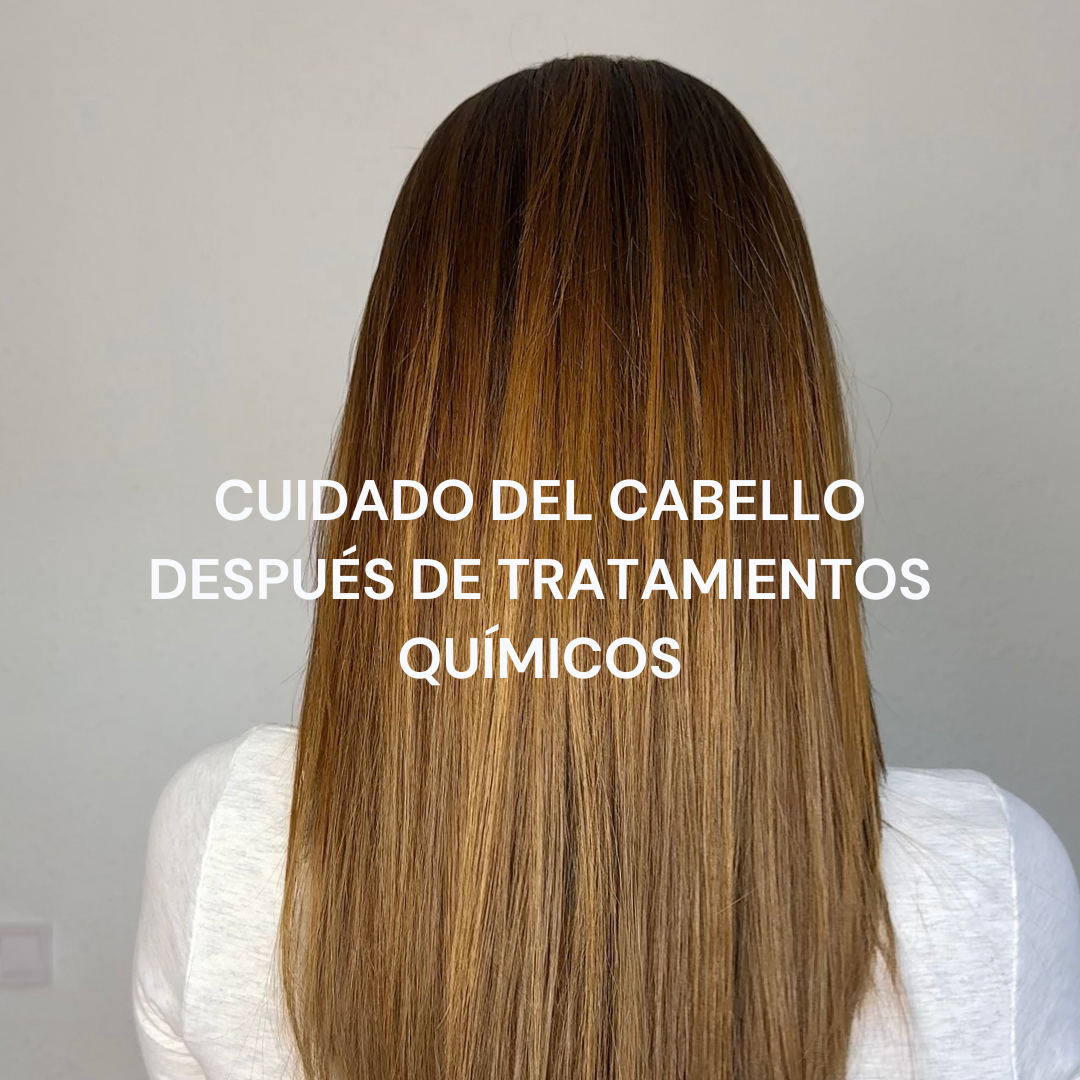
Post-Chemical Hair Care: A Guide to Restoring Hair Health
Compartir
Chemically treated hair, such as hair that has undergone bleaching or straightening, requires special care to keep it healthy, strong, and shiny. While these treatments can offer amazing results in terms of color or texture, they can also leave hair more vulnerable to dehydration, breakage, and loss of elasticity. Below, we offer some key tips for caring for your hair after chemical treatments.
1. Deeply hydrate and nourish
After a chemical treatment, your hair loses a lot of moisture, leaving it more prone to dryness and damage. It's crucial to replenish lost moisture and nutrients.
-
Hair Masks : Opt for hydrating and restorative masks. Look for products that contain natural oils like argan, coconut, or jojoba, or protein-rich ingredients like keratin.
-
Deep Hydration Treatments : Perform intensive treatments once a week, applying a deep-action hair mask. Leave it on for 20-30 minutes for optimal results.
2. Use sulfate-free products
Sulfates in shampoos are harsh detergents that can further dry out chemically treated hair. Choose natural, sulfate-free products that respect the hair's structure while maintaining its natural moisture.
-
Natural shampoos : These products will cleanse your hair without stripping it of its natural oils. They're also ideal for maintaining colors and treatments, as they're less abrasive.
3. Protect your hair from heat
Straightening treatments, such as keratin treatments or permanent straightening treatments, may have left your hair more sensitive to heat. Using heat tools, such as flat irons and blow-dryers, without protection can accelerate breakage and damage.
-
Heat protectant spray : Before using any heat tools, apply a heat protectant to form a barrier between your hair and the intense heat. This will help reduce the risk of damage.
-
Avoid excessive heat : Try to limit the use of flat irons and hair dryers, or use these appliances at a low temperature to prevent overexposure to heat.
4. Trim the ends regularly
Bleaching and straightening can weaken the ends of your hair, making them more prone to splitting. Trimming your ends every 6-8 weeks helps keep your hair healthy and prevent breakage from spreading throughout your entire head.
5. Protect your hair from the sun and pollution
Sun exposure and pollution can make your chemically treated hair even more brittle and dull. UV radiation can also affect your hair color, fading artificial shades.
-
Hats or scarves : Whenever possible, cover your hair with a hat or scarf to protect it from sun damage. If you don't like wearing accessories, there are UV-protecting hair products you can apply before going outside.
-
Natural hair mask : Opt for products that combine hydration and antioxidant protection to combat the negative effects of pollution and the sun.
6. Don't wash your hair every day
Chemically treated hair needs time to regain moisture. Washing it too often can strip it of natural oils, resulting in further dryness and damage. Try to wash your hair only two or three times a week.
-
Dry shampoo : If you can't avoid washing your hair every day, use a dry shampoo.
7. Maintain patience and perseverance
Hair recovery after chemical treatments takes time. You may not see immediate results, but with patience and a consistent care routine, your hair will recover and look healthy again.




